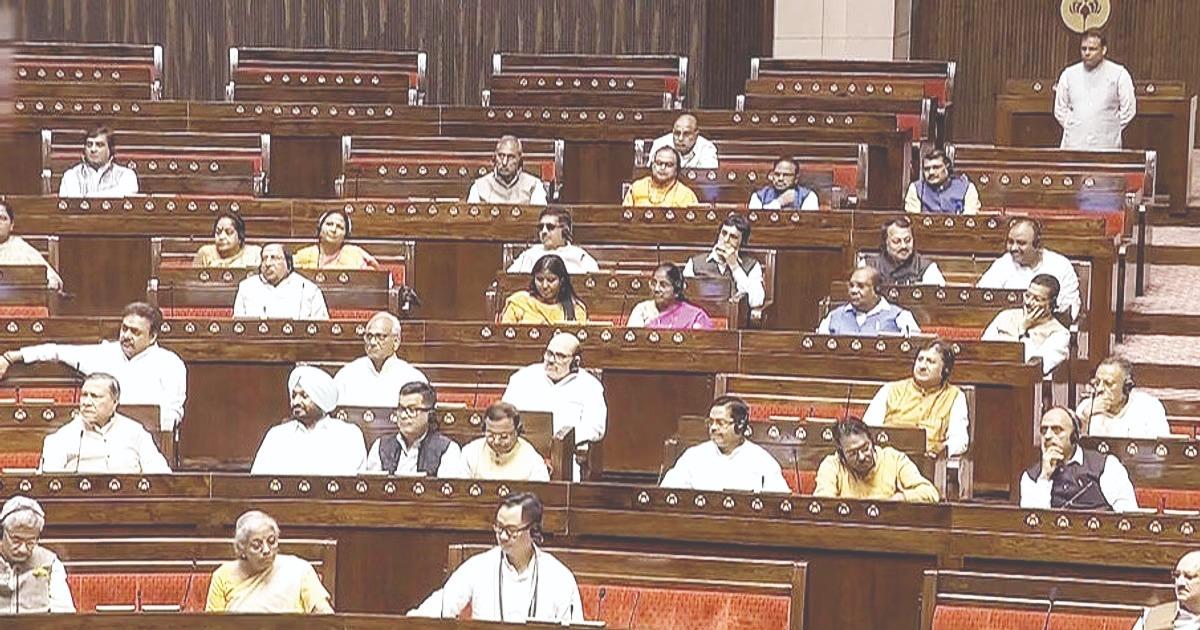Parliament completes budget exercise for fiscal 2024-25
TNN Bureau. Updated: 8/10/2024 1:17:19 PM
Front Page

New Delhi: Parliamentary approval for the Budget 2024-25 was completed on Thursday with the Rajya Sabha returning the relevant legislations to the Lok Sabha after Finance Minister Nirmala Sitharaman's spirited reply to the debate emphasising Budget was aimed at promoting investments and creating jobs.
The Rajya Sabha returned the Appropriation Bill and the Finance Bill to the Lok Sabha, thus completing the budgetary exercise for 2024-25. The Jammu and Kashmir Appropriation Bill too was returned to the Lower House.
Earlier, these bills were approved by the Lok Sabha.
Sitharaman presented the Budget in the Lok Sabha on July 23. It was her seventh Budget.
Replying to the discussions in the Upper House, the minister said the Union Budget balances different overriding imperatives, including growth, employment, capital expenditure, and fiscal consolidation.
"In a nutshell, the Union Budget this year balances several overriding imperatives, growth, employment generation, capital investment, and fiscal consolidation. We have tried to balance all these without compromising on any one sector," Sitharaman said.
On concerns raised by some members regarding haircuts in insolvency cases, Sitharaman said defaulting promoters are not allowed to re-bid for their own company so that "we don't have them coming through the back door & getting it for lesser price".
She also refuted assertions by opposition members that Budget allocation for several key sectors has been reduced.
To further her point, Sitharaman said that more funds have been given to agriculture and allied sectors.
"Rs 1.44 lakh crore was the allocation last year, this time it has gone up to Rs 1.52 lakh crore, that is Rs 8,000 crore more," she said.
The minister also highlighted the higher allocations made in the Budget for other sectors.
She also sought to address the concerns of members on household savings.
"Small savings is alone not the portfolio. People have found different portfolios which are helping them. Financial household savings today have to include other portfolios which are available to small families," the minister said.
She further said the Modi government's approach since 2021 is to progressively relieve all the life-saving drugs and medicines, which are particularly imported for personal use.
"...we have particularly already exempted all of them," said Sitharaman.
The major amendment in the Finance Bill relates to restoration of indexation benefit on the sale of properties bought prior to July 23, 2024. Now, individuals or HuFs who purchased houses before July 23, 2024, can opt to pay LTCG tax under the new scheme at the rate of 12.5 per cent without indexation or claim the indexation benefit and pay 20 per cent tax.
Responding to demands for the removal of GST on health and life insurance premiums, Sitharaman said that 75 per cent of the GST collected goes to states.
Prior to levying 18 per cent GST on health insurance (premium), all states used to levy tax on insurance premiums. So when GST was rolled out, the tax automatically got subsumed into GST, Sitharaman said.
TMC Rajya Sabha member Derek O'Brien suggested that in the GST Council, if the majority vote is with NDA, then why not the levy has been reduced.
To this, the minister said endeavour is to take all decisions in the Council with consensus.
Participating in the discussion in the Rajya Sabha, opposition members criticised the government for lower allocations on key schemes, and not doing enough to promote growth and generate employment.
The issue of 18 per cent GST on health and life insurance premiums too figured prominently in speeches made by opposition members.